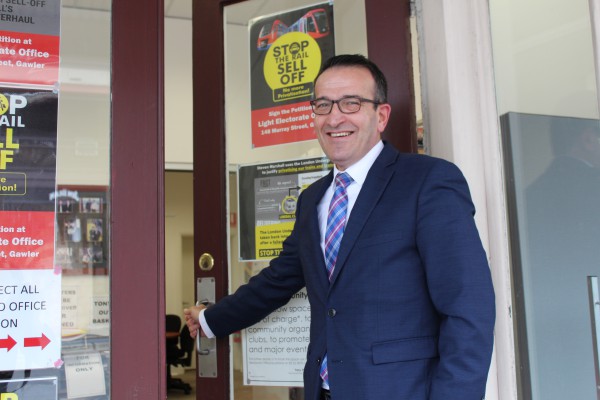THE bus services that the community and I fought so hard for in 2010 are being severely slashed in an appalling act of vandalism by the State Government that (I believe) is determined to privatise public transport services at any cost.
This will mean more cars on the road and more traffic and car parking chaos at busy railway stations, shopping centres and schools.
The public is also in the dark about which bus stops will be axed. There are over 500 bus stops to be axed across the network and many of these will be in the Light electorate.
For those living in Willaston, Hewett and Gawler East you will see your 491 and 492 bus services axed.
If you live in Munno Para, there will be less services for a new $260m B-12 school at Angle Vale, where public consultation on public transport seems non-existent from the education department, which will create total traffic chaos for school drop-offs and pick-ups.
This cut will impact families, particularly those who only run one car or no car at all, increasing their cost of living and putting more pressure on household budgets already stretched by the COVID-19 pandemic.
The language used by the minister for transport in justifying these cuts is that of corporate management, not the language one would use to describe an essential community service.
The minister refers to increased efficiency, to provide lower cost services, but that is only achieved by drastically reducing these services.
So, it is efficiency versus effectiveness. I support effectiveness, because it considers need and not only cost.
Small businesses in the Light electorate will be affected by the bus cuts, as people will not be able to travel throughout the area to access these goods and services.
It is also clear that cuts do not address the needs of those living in our community with a disability. The minister says, ‘Well, what’s a few extra hundred metres if you have to walk to the bus stop?’
If you have a disability, are elderly or infirm, the 200 or 300 metres more to walk to a bus stop means the difference between accessing a public bus service and not.
That is the difference.
The minister then spoke about customers. Reducing the value of citizenship to simply paying customers. In other words, customers pay and you only deliver to those select people.
All citizens must be treated with dignity.
I believe that the services should be there for all people, according to need.
It is not about being treated as a customer. We need to look after the most vulnerable people in our community. Those who have paid taxes for fifty years and are now retired. What these cuts do, is undermine the basic needs of the people in our community.
We must put people’s basic needs first.
Putting people’s needs first

Sam Greenwood
Digital Edition
Subscribe
Get an all ACCESS PASS to the News and your Digital Edition with an online subscription
Community hub acquires land for a buck
A TRIO of Gawler community groups are the new owners of a $1 parcel of land at Willaston following issues with builders and ownership...








